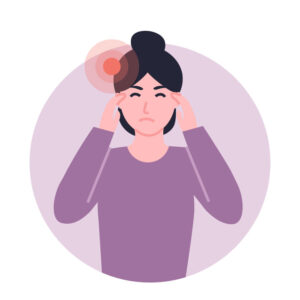Hormonal Imbalance
Hormonal Imbalance in KPHB Hyderabad. Hormonal imbalances can cause a wide range of health problems, from mood swings to weight gain and even infertility. Ayurveda, an ancient Indian medical system, offers a holistic approach to balancing hormones naturally. In this blog, we will explore Ayurvedic treatment for hormonal imbalance and Ayurvedic medicines for hormonal imbalnce to improve overall health. Hormones are chemical messengers that regulate various functions in the body, including growth and development, metabolism, and reproduction. Hormonal imbalances occur when there is too much or too little of a hormone in the body. This can be caused by a variety of factors, including stress, poor nutrition, and certain medical conditions.
What are symptoms of Hormonal Imbalance
Symptoms of hormonal imbalances can vary widely depending on the hormone involved but can include:
- Mood swings
- Fatigue
- Weight gain or loss
- Irregular periods or fertility issues
- Acne or other skin issues
- Hair loss or growth
- Digestive issues
- Balancing Hormones with Ayurveda
Hormonal Imbalance

What are the common causes of Hormonal Imbalance?
Hormonal imbalance can be caused by various factors, and it often results from disruptions in the complex endocrine system. Some common causes of hormonal imbalance include:
- Stress: Chronic stress can lead to elevated cortisol levels, affecting the balance of other hormones like insulin, thyroid hormones, and reproductive hormones.
- Diet and Nutrition: Poor eating habits, nutritional deficiencies, or excessive intake of processed foods can impact hormone production and regulation.
- Lack of Sleep: Inadequate or irregular sleep patterns can disrupt the body’s hormonal balance, particularly affecting hormones related to stress, growth, and metabolism.
- Puberty, Pregnancy, and Menopause: Natural life stages such as puberty, pregnancy, and menopause involve significant hormonal changes that can lead to imbalances.
- Medical Conditions: Certain medical conditions, such as polycystic ovary syndrome (PCOS), thyroid disorders, diabetes, and adrenal gland disorders, can disrupt hormonal balance.
- Medications: Some medications, including hormonal contraceptives, corticosteroids, and certain treatments for cancer, can impact hormone levels.
- Environmental Toxins: Exposure to environmental toxins like endocrine-disrupting chemicals (found in some plastics, pesticides, and household products) can interfere with hormonal balance.
- Weight Changes: Obesity or extreme weight loss can influence the production and regulation of hormones, particularly insulin and sex hormones.
- Genetics: Some individuals may be genetically predisposed to hormonal imbalances or conditions that affect hormone levels.
- Lifestyle Factors: Sedentary lifestyle, lack of physical activity, and excessive alcohol or substance abuse can contribute to hormonal disruptions.
Ayurvedic Remedies for Hormonal Imbalance
Ayurvedic approaches to treating hormonal imbalance take a holistic perspective, focusing on harmonizing the interconnected elements of the mind, body, and spirit. Personalized to an individual’s unique constitution or dosha, Ayurvedic treatments categorize the body into three doshas: Vata, Pitta, and Kapha, each associated with distinct elements.
In addressing hormonal imbalances, Ayurvedic treatments incorporate various natural remedies, including:
1. Herbs: Ayurveda has a rich tradition of utilizing specific herbs, such as Ashwagandha, Shatavari, and Guduchi, known for centuries to balance hormones.
2. Diet: Emphasizing fresh, whole, and seasonally appropriate foods, Ayurvedic nutrition aligns with an individual’s doshic constitution, aiding in hormone balance and overall health improvement.
3. Lifestyle: Consideration of lifestyle factors, including exercise, sleep, and stress management, plays a pivotal role in hormonal balance. Ayurveda recommends gentle exercises like yoga, along with practices such as meditation and pranayama (breathing exercises).
4. Panchakarma: Utilizing Panchakarma, a traditional Ayurvedic detoxification therapy, helps balance hormones by eliminating toxins from the body.
5. Oil Massage: Regular oil massages using Ayurvedic medicated oils contribute to hormonal balance, stress reduction, and improved circulation.
Ayurvedic medicine offers a range of herbs and holistic practices to address hormonal imbalances. However, it is crucial to consult with a qualified Ayurvedic practitioner or healthcare provider before incorporating any herbs or treatments, as individual needs and conditions may vary. Commonly employed Ayurvedic herbs and practices for hormonal imbalances include:
– Ashwagandha (Withania somnifera): An adaptogenic herb, it helps reduce stress and balance hormones by regulating cortisol production.
– Shatavari (Asparagus racemosus): Known for its hormone-balancing properties, particularly for women, Shatavari supports the female reproductive system, aiding in the regulation of menstrual cycles and alleviating menopausal symptoms.